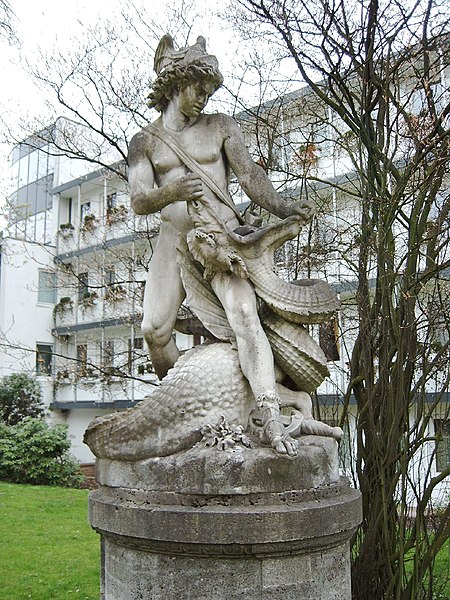Since the 2012 release of Quentin Tarantino's Django Unchained the global movie audience is familiar with the story of Brunhilde and Siegfried (i.e. the German Nibelungen saga) as told by Dr. Schultz. It is my personal pleasure today to present to you the economic sequel of this saga:
The economic sequel features the current German approach to economic policy making based on what can best be described as Germanic Economic Mythology:
The economic sequel features the current German approach to economic policy making based on what can best be described as Germanic Economic Mythology:
It serves four gods and goddesses, namely
1.) the Swabian housewife [most revered for her budgeting skills]
2.) financial markets [the evil twin of the Schwabian housewife]
3.) competitiveness [the mother of exports]
4.) free and flexible markets [esp. as applied to labor markets]
Assisting the gods and goddesses are the invisible fairies, namely
- the confidence fairy which helps motivate financial markets to invest
and - the invisible hand which guides market participants toward the equilibrium between supply and demand, even if it means poverty-level wages.
The gods and their fairies live in dark forests filled with dragons and zombies (zombie banks, the inflation zombie, cockroach zombies). While zombie banks are regularly fed with corporate welfare payments in the hope that they can be reanimated, Germans desperately fear that the inflation zombie comes back to life because it might turn into a fire-spewing dragon. That is why they prefer to beat it down even when it shows no signs of life at all.
Germans also fear another, even more horrible dragon with three ghastly heads: the public debt. Its largest head is the federal government's debt, including the obligations of the national pension fund. The other two heads include the regional debt and the debt of the communes.

No comments:
Post a Comment